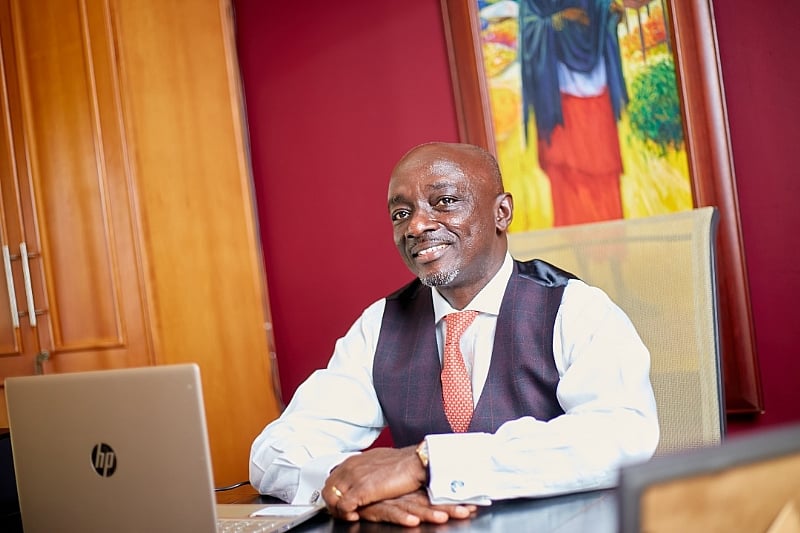Richard Kwadwo Adu, a prominent figure within the New Patriotic Party (NPP), has emphasized the crucial role of dynamic national leadership, in conjunction with the chosen flagbearer, in securing victory for the party in the 2028 general elections. He argues that the party’s success hinges not solely on the presidential candidate but also on a strong national leadership structure that can effectively mobilize and energize the grassroots base. Speaking ahead of the NPP’s presidential primaries slated for January 31, 2026, Mr. Adu highlighted the need for a chairman with impeccable credibility and deep-rooted connections within the party, suggesting Edward Boateng, Ghana’s former Ambassador to China, as a potential candidate possessing these qualities. He underscores the importance of a leader who can effectively connect with and inspire the party’s foundational elements – the polling stations and constituency structures – stressing that these are the true backbone of the NPP.
Mr. Adu’s argument centers around the idea that a strong connection between the national leadership and the grassroots is essential for electoral success. He stresses the importance of selecting leaders who are not only competent but also approachable and trusted by the party’s rank and file. He cautions against simply choosing leaders based on superficial criteria, emphasizing that a deep understanding of the party’s dynamics and the ability to connect with the grassroots are paramount, especially given the NPP’s goal of regaining power after a presumed loss in the 2024 elections. He draws a direct link between the neglect of the grassroots and the party’s hypothetical defeat in 2024, warning that repeating this mistake in 2028 could have disastrous consequences.
The core of Mr. Adu’s endorsement of Edward Boateng lies in Boateng’s perceived ability to bridge the gap between the party leadership and its grassroots support. He portrays Boateng as a figure who understands the dynamism of modern politics and can effectively harness the energy and enthusiasm of the party’s youth to rebuild and prepare for the next election cycle. Mr. Adu points to the youth’s desire for leaders who are attuned to the evolving political landscape, suggesting that Boateng embodies this desired quality. This focus on youth engagement highlights the importance of appealing to the next generation of voters and incorporating their perspectives into the party’s strategy.
Furthermore, Mr. Adu underscores Boateng’s extensive experience in public service and his track record in various leadership roles. He highlights Boateng’s tenure as Director-General of the State Interests and Governance Authority (SIGA) from December 2021 to November 2023, a position that provided him with valuable experience in managing state-owned enterprises and navigating complex governance issues. This experience, coupled with his subsequent diplomatic posting to China, is presented as evidence of Boateng’s ability to operate effectively at high levels of government and international relations. Mr. Adu argues that this combination of business acumen, diplomatic experience, and understanding of governance makes Boateng uniquely qualified to lead the NPP at this critical juncture.
Mr. Adu’s emphasis on experience and leadership extends beyond Boateng’s public service record to encompass his business background. This highlights the importance of having a leader who understands the complexities of economic management and can contribute to the development of sound economic policies. The combination of public service, diplomatic experience, and business acumen is presented as a compelling argument for Boateng’s suitability to lead the NPP. This implies a belief that the party needs a leader who can not only navigate the political landscape but also contribute to the broader economic well-being of the country.
In essence, Mr. Adu’s message is a call for strategic leadership within the NPP, emphasizing the vital connection between the party’s leadership and its grassroots base. He argues that the party’s success in 2028 will depend on choosing leaders who can not only inspire the party faithful but also connect with the broader electorate. He presents Edward Boateng as a candidate who embodies these qualities, drawing on his experience in public service, diplomacy, and the business world to make his case. This call for a dynamic and connected leadership reflects a broader understanding of the evolving political landscape and the need for parties to adapt and evolve to remain competitive.


